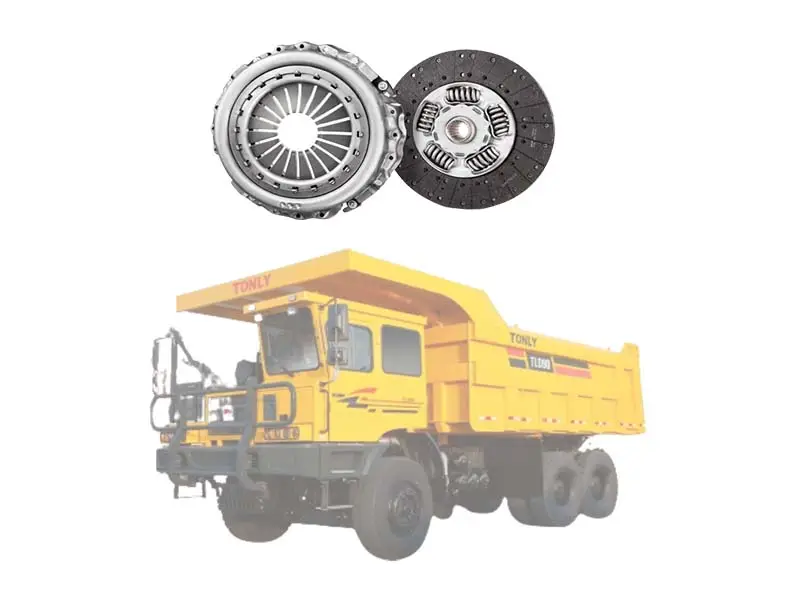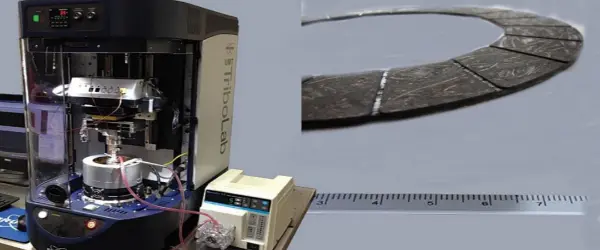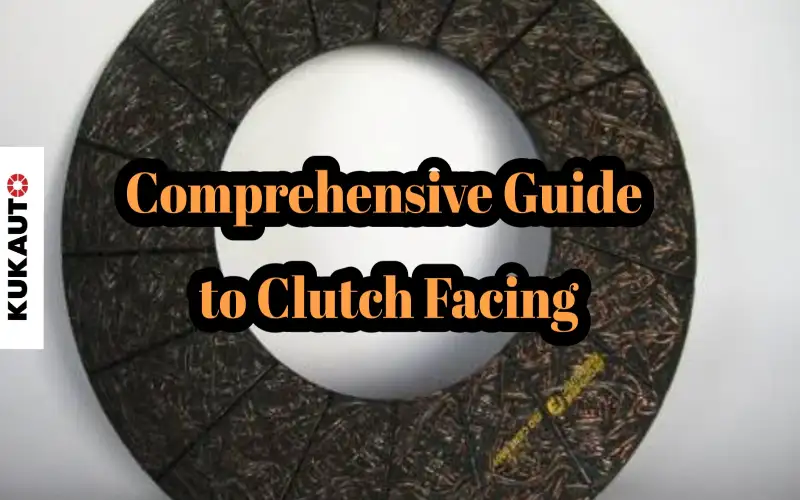Introduction
Suppose you are driving 150 km per hour. Another vehicle comes in front out of the blue. What will you do at this point?
Obviously, you hit the brake pedal to stop the car!!
But do you know how the brake pedal helps stop the car? Brake pads are the HIT of the time in the braking. So, finding the correct brake pads is essential.
In this guide, we'll learn about brake pads, the factors that influence their functions, and their benefits.
Brake Pad Basics
- What are Brake pads?
The brake pad is a block of semi-metallic or ceramic material attached to a metal plate. It has friction that helps stop the vehicle whenever the brake is applied.
- How do they work?
Brake pads have a high friction coefficient. They apply the frictional force to the rotor attached to the vehicle. It helps stop the wheel hub or improve the control over the wheels.
- Types of Brake Pads
Brake pads have two main types often considered during their manufacturing. These include:
Semi-Metallic Brake Pads
Semi-metallic brake pads comprise 30-60% of the metals. Common metals include:
- Brass
- Copper
- Iron
- Steel.
These have a pretty high strength. One main disadvantage of such brake pads is noise production.

Ceramic Brake pads
Ceramic brake pads contain more of the copper fibers and clay. They are often lightweight and provide complete protection from the dust.
The BEST THING? It is ZERO noise production. But they are expensive options compared to semi-metallic brake pads.

Benefits of Brake Pads
Brake pads are a blessing. Here is why:
- Help in the smooth braking process
Braking not only stops the vehicle but also keeps you safe without creating extra vibrations. Brake pads offer the necessary friction to avoid shaking off the vehicle by ironing out the braking process.
- Minimize Noise production
During braking, there is rubbing of the metals. It creates a loud noise. But brake pads absorb the extra sound and prevent noise production.
It makes them an eco-friendly solution for the people.
- Longer life span
Good quality brake pads can work up to 80,000 miles if you regularly maintain them. Such a high lifespan is still enough to cut your costs on buying low-quality brake pads.
- Replaceable
Do you know A PROMISING FACT about brake pads? They are replaceable. That means you do not have to worry even if they wear out earlier.
Factors that influence the brake pads
Do you know the secret behind the decreased performance of the brake pads? Several factors affect the total performance of brake pads. These are:
- Road condition
City roads or highways: Where do you drive the most? Road condition and smoothness of driving help the braking work for higher periods.
- Loading situation
The higher the load is, the more impact on the braking system it is. Plus, load type is also influential. It can blow the brake performance if you have general cargo or liquids in your truck.
- Driver Habits
If the driver is gentle, there is better performance of the braking system. It is because of the sensible use of the braking. The aggressiveness of the driver habits can be a big hit to the performance of the braking systems.
- Braking Frequency
The more braking you use, there is a decrease in the performance. It is a COMMON SENSE. Please pay attention to this factor in mind.
- Maintenance Habit
Maintenance affects largely. It decreases the performance within a short period.
Maintaining the brake pads regularly can be more effective. It lets the brake perform better.
Tips to consider when choosing the brake pads
Do you want to buy brake pads? It is the BEST, but the perfect choice comes up with the research. Here are some points you should look for in your dream brake pads.
- The type of the brake pads
There are two main types of brake pads. Their properties are different. So, when choosing suitable brake pads, you must determine the vehicle, road type, and many influencing factors.
It helps you choose the suitable types of brake pads.
- The vehicle types
What type of vehicle do you have? It largely discerns the brake types you often need.
For example, high-performance vehicles require more compatible brake pads. Such pads must have a high friction coefficient and temperature resistance.
- Properties of the brake pad
Brake pads have various properties. When it comes to the PERFECT choice, don't ignore them. These are:
- Friction coefficient.
The friction coefficient means the strength to help in the braking system. A high friction coefficient is more effective. Therefore, choose brake pads with a high friction coefficient. Before buying, look at the specs on the cartons or ask the seller. If the brake pads have a high friction coefficient, these can be your choice. It is as simple!!
- Temperature resistance
In the vehicle, temperature fluctuations are typical. And why not have brake pads that work perfectly in such a condition? That is when you need to get brake pad materials with high-temperature resistance. A bad brake pad will burn and produce an odor when braking in high-speed driving.
- No noise production
Are your brakes producing noise when applied? That is a TOTAL HEADACHE!! Choose a material that causes less NOISE pollution, making it an eco-friendly option.
- Durability
The quality and strength of the material are more related to durability. And durability defines how long your brakes will work without losing performance.
Look at all the types of material and prefer a more durable one.
- Genuine parts or after-market parts
People make mistakes here. They do not even know whether the parts of the brake pads are genuine or after-market. Genuine parts come directly from the vehicle manufacturers. On the other hand, after-market components are manufactured by another company in the market.
It can potentially affect the quality of the brake pads. Genuine parts are often MORE EFFICIENT but expensive. In contrast, after-market parts are suitable with reasonable costs.
- Warranty time
Warranty is the safeguard for your brake pads. High warranty periods mean you can get a FREE replacement for your brake pad in case of any problem. That is when you need to GO one step extra and buy the brake pads with an extended warranty period.

- Consult with Experts
Another idea for choosing the ideal brake pads is to involve industry experts. Have a brief chat with them. They will assess the situation and give you a timeless idea for the top-level and compatible brake pads.
FAQs
- How long does a brake pad last?
It depends more on the road type, quality, and relevant factors. Usually, a brake pad lasts for 30,000 to 35,000 miles. In highway driving, these might work up to 80,000 or more miles in some cases.
- Are brake pads rust-proof?
Yes. They are mainly composed of materials like Steel and Cast iron. Since these materials are prone to rust, you can expect rust on exposure to the outside environment. But there are also ceramic pads that are rust-proof.
- When should I change the brake pad?
If you consider replacing the brake pads, wait for the red flags. These are:
- Your brakes are producing grinding sounds.
- Vibration occurs whenever you apply the brake.
- The brake pedals appear to be thin.
- It is taking a longer time to stop the car.
- Can I change the brake pad myself?
Yes. You can change the brake pad yourself if you have the experience. Depending on the vehicle, it is the force you need to install. Without any experience, it is better to get it replaced by the mechanics.
Conclusion
Brake pads are super efficient, ensuring the safe and easy stoppage of the vehicles on the roads.
We have covered every single point about the brake pads. What else do you want? Let us know in the comments.






